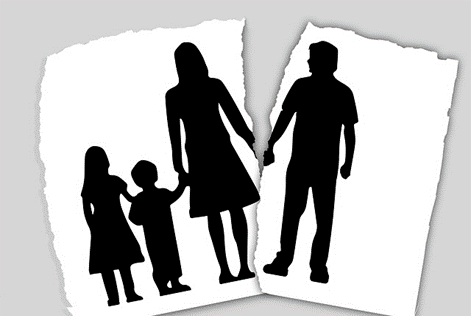Dean Godfrey’s legal career began as an Assistant District Attorney in Wichita County, a role he held from 2015 to 2017. Subsequently, he transitioned into civil litigation, serving as an associate at C. Dan Campbell, P.C. until 2020, when he established his own legal practice, Dean Godfrey Law, PLLC. In the following article, Dean Colin Godfrey discusses how mediation in family law empowers positive dialogue for divorce and custody cases.
Navigating the challenges of divorce and custody cases is never easy. The emotional turmoil, legal complexities, and the well-being of everyone involved can make these situations overwhelming. However, there is an alternative approach that offers a more amicable and cost-effective solution – family law mediation.
Dean Colin Godfrey Details the Benefits of Mediation
Family law mediation involves a structured process that encourages open dialogue and collaboration. The mediator’s role is pivotal, as they guide the process, promote communication, and ensure the discussions remain on track. Unlike litigation, which often pits one party against the other, mediation seeks to find common ground and mutually beneficial solutions.
Types of Family Law Cases
Dean Colin Godfrey explains that mediation can be applied to a wide range of family law cases, including:
Divorce: When a marriage is coming to an end, mediation helps couples divide assets, establish alimony, and create parenting plans that serve the best interests of their children.
Custody Disputes: Parents embroiled in custody battles or seeking modifications of existing agreements can turn to mediation to ensure their child’s needs are met.
Child Support: Mediation assists parents in agreeing on child support payments, ensuring financial stability for the child.
The Role of Mediation in Family Law
The role of mediation is paramount in reducing conflict and emotional distress often associated with family law matters, enabling individuals to express their concerns and needs in a supportive setting. Instead of adversarial courtroom battles, mediation introduces a neutral third party, the mediator, who facilitates open and collaborative discussions.
Whether it involves asset division, spousal support, or child custody arrangements, mediation is a versatile and effective tool. This process, which includes initial consultations, information gathering, negotiation, and agreement drafting, fosters improved communication, cost-effectiveness, customized solutions, and time efficiency. Dean Colin Godfrey says, ultimately, mediation humanizes the legal process, placing the well-being of individuals and families at the forefront, and providing a foundation for more amicable and harmonious futures.
The Process
 The mediation process in divorce and custody cases is a structured and effective means of resolving complex family disputes. This process typically unfolds in several stages, each aimed at fostering communication and reaching mutually acceptable solutions.
The mediation process in divorce and custody cases is a structured and effective means of resolving complex family disputes. This process typically unfolds in several stages, each aimed at fostering communication and reaching mutually acceptable solutions.
Initial Consultation
The journey begins with an initial consultation, where both parties are given an opportunity to meet with a mediator and discuss their objectives, apprehensions, and desires. Dean Colin Godfrey explains that this essential first step gives couples a chance to ask questions about the process while also allowing the mediator to explain how it works, and its advantages. In some cases, this may be requested by court order with various guidelines depending on jurisdiction.
Information Gathering
Once both parties agree to proceed with mediation, the mediator collects essential information from each side. This phase involves understanding the concerns, priorities, and desired outcomes of the parties involved. It’s a critical step in building a comprehensive picture of the issues at hand.
Negotiation and Problem Solving
Dean Godfrey of Wichita Falls notes that the heart of the mediation process lies in negotiation and problem-solving. The mediator serves as a neutral facilitator, guiding discussions and encouraging both parties to collaborate in finding solutions to their issues. Open and constructive dialogue is key during this phase, as it paves the way for mutually agreeable resolutions.
Drafting Agreements and Closing
When agreements are reached, the mediator helps draft the necessary legal documents, ensuring that all parties comprehend and are comfortable with the terms. This stage is pivotal in formalizing the decisions made during mediation, transforming them into legally binding agreements.
Benefits of Mediation in Family Law
Mediation in family law offers a myriad of benefits that make it an attractive alternative to traditional litigation. These advantages extend to all parties involved, making it a constructive and efficient method for resolving family disputes.
Improved Communication
Mediation can provide a platform for the open and frank discussion necessary to build healthier relationships as well as successful co-parenting. Dean Godfrey of Wichita Falls says that through its emphasis on respectful dialogue, constructive communication is encouraged throughout the mediation process which in turn continues post-divorce, especially when children are involved.
Cost-Effectiveness
This also presents a more economical solution than litigation in terms of reduced legal fees and court costs, due to couples having the ability to arrive at an agreement themselves rather than through a lawyer. It allows for privacy throughout the divorce process since proceedings are not made public like conventional divorces. In this way, mediation provides secrecy while still enabling dispute resolution.
Customized Solutions
The parties involved in mediation are allowed to customize their process and outcomes based on their preferences. This includes giving them the chance to solve issues gradually, suggesting suitable techniques for resolution as well as creating solutions that suit each party’s unique situation. Such tailored resolutions empower all participants by letting them constructively work together towards agreements which meet everyone’s individual needs and concerns.
Timesaving
Mediation is often viewed as a more rapid option for settling conflicts, enabling both sides to find an answer and proceed with their lives in less time than other court proceedings. This technique provides a productive environment which greatly saves the precious moments of everyone involved.
Confidentiality in Mediation
Dean Godfrey of Wichita Falls says that unlike court proceedings, mediation is confidential. This ensures the privacy and dignity of all parties involved, preventing sensitive family matters from becoming public knowledge.
Challenges and Limitations of Mediation
While mediation in family law offers numerous benefits, it is not without its challenges and limitations. It’s essential to be aware of these potential drawbacks when considering mediation as a means of resolving family disputes:
Power Imbalances
Power differences between the parties may cause unfair outcomes in negotiation due to their disparities in knowledge, resources, or emotional stability. Possibly letting one side control the process and influence it for themselves. To address these imbalances of power methods such as having a mediator present ensuring fairness, providing both sides with equal access to information, and appointing advocates who represent each party can be used.
High-Conflict Situations
Dean Colin Godfrey of Wichita Falls notes that when mediation is faced with strong emotions and disputes, it can become difficult or useless. When the conflict is very serious, people might not be able to recognize their contribution to causing that tension. They could demand certain results and adhere strictly to them. It’s up to the mediator then -through attentive listening, open expression of ideas, and an adjustable attitude to handle this situation properly so a useful conversation occurs effectively.
Legal Complexity
When it comes to resolving disputes with intricate legal matters or when parties must obtain substantial counsel, mediation may not be suitable. It is imperative that all involved appreciate its restrictions and consider other dispute resolution methods in such cases, so their rights are preserved through appropriate legal representation. Dean Godfrey of Wichita Falls says that even though alternative approaches might need to be taken into account under these circumstances, utilizing mediation can still remain a valuable tactic for settling differences.
Tips for Successful Mediation
Successful mediation hinges of effective communication, collaboration and a conducive environment for resolution. Here are some valuable tips to ensure a productive experience:
Preparation
Come well-prepared for mediation by understanding your goals and concerns. Gather relevant documents and information to facilitate discussions.
Identify Your Priorities
Dean Colin Godfrey of Wichita Falls says to clarify your priorities and non-negotiable points. This helps you focus on what truly matters and be willing to compromise on less critical issues.
Active Listening and Open Communication
Actively listen to the other party’s perspective and express your own views clearly and respectfully. Open and honest communication is key to resolving differences.
Flexibility and Compromise
Be flexible and open to compromise. Mediation is about finding common ground, so be willing to adapt and find solutions that work for both parties.
Choosing the Right Mediator
Selecting the right mediator is a pivotal decision when it comes to successful dispute resolution through mediation, especially in family law cases. Here are key considerations for choosing the right one:
Experience and Qualifications
When looking for a mediator, examining their background and expertise in family law and mediation is essential. Dean Colin Godfrey of Wichita Falls says that the right individual should be equipped to tackle the special difficulties your situation may bring with ease. Such experience will lead to smoother proceedings that are likely to end up being successful.
Personal Fit
Having a skilled and trustworthy mediator is key for ensuring useful communication between parties. Such an individual should have the emotional savvy to comprehend all perspectives, be evenhanded in their actions, and form strong connections with both people engaged in the mediation process. The type of character chosen can make or break how successful negotiations are.
Neutrality
Having a neutral mediator is essential in order to guarantee an unbiased and successful mediation process. This person’s role should be that of a facilitator, encouraging communication between the involved parties while ensuring they are not taking sides or making decisions for them. Through this guidance, it is possible to reach an agreement which both persons agree with. Choosing someone impartial will provide assurance that everything follows suit fairly so all voices can be heard without judgment or prejudice.
Summary
Mediation is a practical solution for family law disagreements, providing an avenue that encourages collaboration and cooperative communication while being more cost-effective than regular litigation. Though there may be certain challenges or limitations to take into account, its merits tend to outshine any shortcomings if both parties are dedicated to problem-solving by means of constructive dialogue and compromise. By keeping these ideas in mind as well as finding the ideal mediator for your situation, one can approach their family law challenge with poise and greater assurance of attaining desired results.








